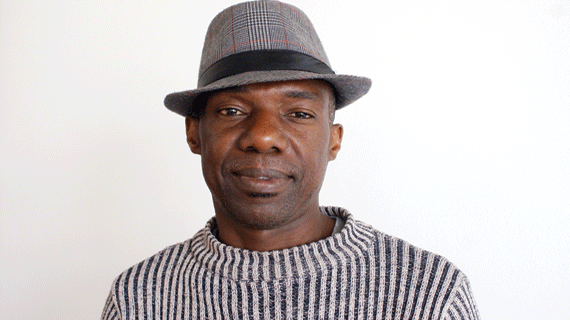
AS we eagerly await Brazil 2014, the first World Cup hosted in Africa is now part of history. South Africa pulled it off with Fifa boss Sepp Blatter giving them nine out of 10 on his scorecard.
This flew in the face of sceptics (in Zimbabwe we call them detractors) who doubted that an African country could successfully host the world’s biggest event. Not only is South Africa now endowed with world-class stadia, there is other infrastructure sucha as roads, the Gautrain and Metrobus.
There was the legacy of all the sports programmes, poverty alleviation initiatives and education schemes that have been established in the name of soccer; not to forget very rich sex workers.
However, the regrettable fallout from Mzansi 2010 is the fact that not many sporting disciplines would tolerate the 127 decibel vuvuzela with the persistent drone which has been banned at the Brazil 2014 World Cup. The ubiquitous vuvuzela was also banned by some English Premier League clubs, the first being Tottenham Hotspur.
Arsenal, Birmingham City, Everton, Fulham, Liverpool, West Ham United and Sunderland also followed suit. Oh Bollocks! Manchester City and Chelsea — though not encouraging their fans — had no such plans to ban it. Yay! Other sporting events where one was unlikely to hear the vuvuzela included all golf tournaments, the 2012 Wimbledon tennis tournament, and equestrian events.
What kind of African goes there anyway?
The official soccer ball of Brazil World Cup is called the Brazuca and Fifa will introduce goal-line technology. This has put paid to attempts by Mexican scientists (of all people) working on a new ball that was to beam out TV replays and light up in bright colours when it crossed the line!
The ball was to be packed with cameras, lights and a GPS chip, but still weigh the same.
- Chamisa under fire over US$120K donation
- Mavhunga puts DeMbare into Chibuku quarterfinals
- Pension funds bet on Cabora Bassa oilfields
- Councils defy govt fire tender directive
Keep Reading
“What we wanted to do with this ball is to demonstrate how a product that historically has not changed can be innovated and taken in a new and completely different direction,” said Alberto Vilarreal, an industrial engineer who led the project.
Well that sounds more wayward than the 2010 Jabulani ball which was criticised by players at the 2010 World Cup for being “unpredictable”.
The designers knew that conservative Fifa would reject the ball outright. That won’t stop the creative mad scientists from being touted as the first to invent a soccer ball with bells and whistles! This can’t be real . . . is it?
Another legacy of the 2010 World Cup was the introduction of a new word into the English language as a direct result of the game between Ghana and Uruguay. Remember the goal (that should have been but never was) that could have been Africa’s only hope for World Cup glory?
That word is . . . SUAREZ (Verb) (a) To viciously and proactively inhibit or halt the progress of a person, an establishment or a nation. For example: “The team’s opportunity to score was SUAREZed by a member of the opposing team.”
(b) To act in a way that is deliberate and intentional, though spontaneous, yet calculated to frustrate the advancement of an adversary. For example: “As pressure built up in the dying moments of the game, a shot at goal was SUAREZed by an opponent standing next to the goal post.”
(Noun) (a) A state of being, where all your efforts are visibly and overtly being frustrated and impeded. For example: “I am in a state of SUAREZ, please don’t stress me further.”
(b) A purposeful behaviour intended to disregard rules or engagement so as to prevent an opponent from eminent victory. For example: “The first thought that came to Fernando’s mind was to cause SUAREZ in order to save the day.”
(Adverb) Describing a frustrated state of mind where force is directed, deliberately and intentionally. For example: “The Uruguayan SUAREZedly prevented the ball from entering the goal posts.”
SYNONYMS: frustrate, prevent, stress, halt, oppose, challenge, resist.
ORIGIN — Root word is from the extinct Inca language meaning “an erratic young man with the tendency to frustrate the effort of all those who deal with him whether in peacetime or wartime”.
Since that time SUAREZ, the entity otherwise known as Luis, so popularly called in Ghana because of the inscription on the back of his jersey, has become a household name in Ghana. Ghanaians have not been economical with their curses on him. They sleep cursing, eat cursing, walk cursing and . . . well.
And who will forget the antics of Paul, the octopus that predicted the results of World Cup matches the Germans won and lost, and of course that of the final. He beat several pretenders to the throne that included an Elephant and some other creature.
Well news is that the Spanish town of Carballino gave Paul the honorary citizenship before England made him ambassador of their 2018 World Cup bid. In Zimbabwe, we do not have octopuses, but ondofa or tikoloshe or goblins. They will put Paul to shame any day.
Notwithstanding the fact that Paul the Octopus died soon after the 2010 World Cup. Brazil 2014, bring it on!
Lenox Mhlanga is a commmunications and media consultant as well as an accredited trainer. He can be contacted at [email protected]










